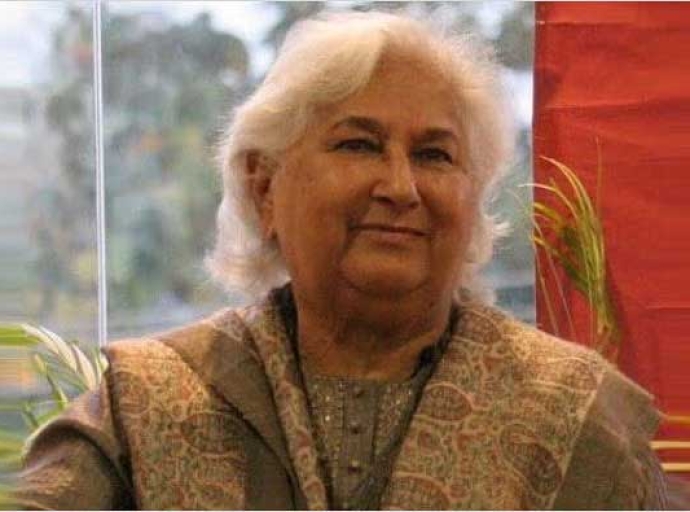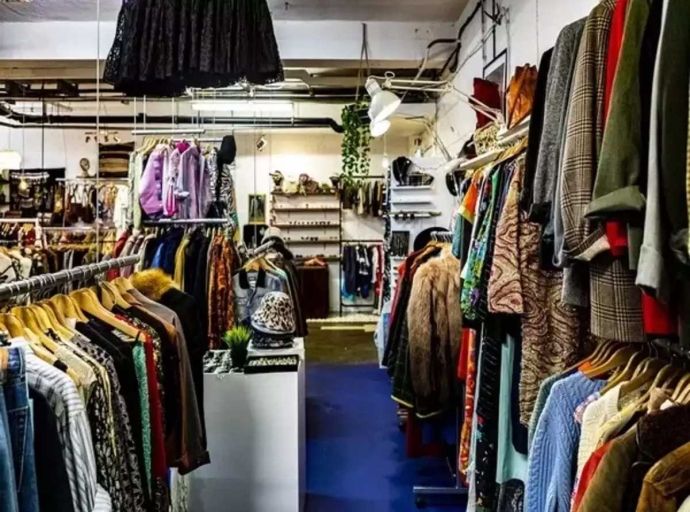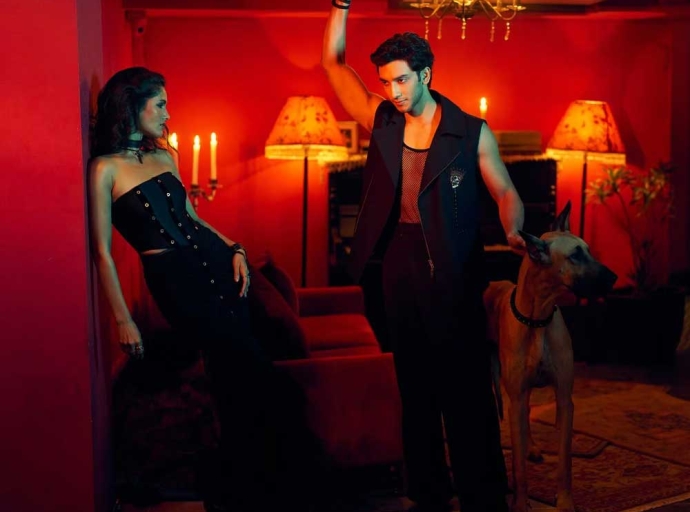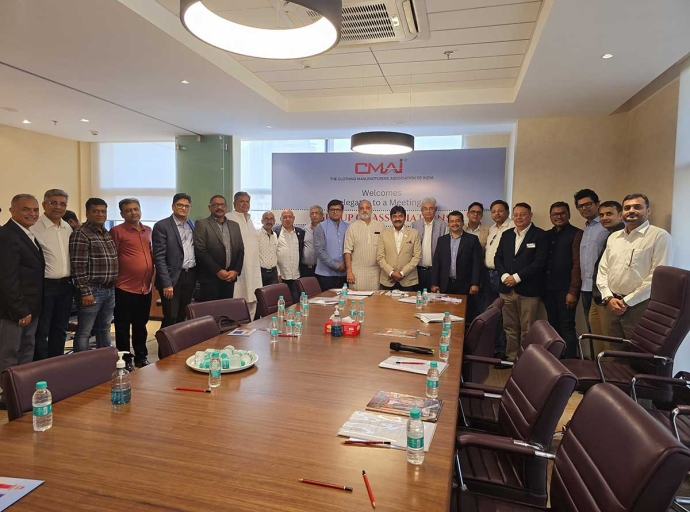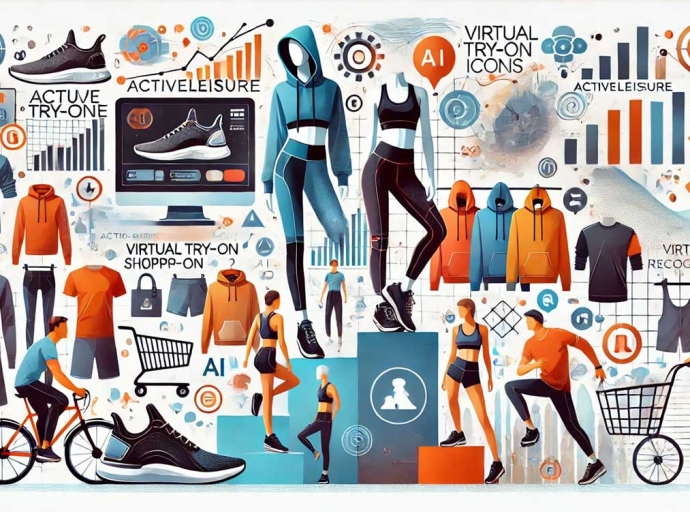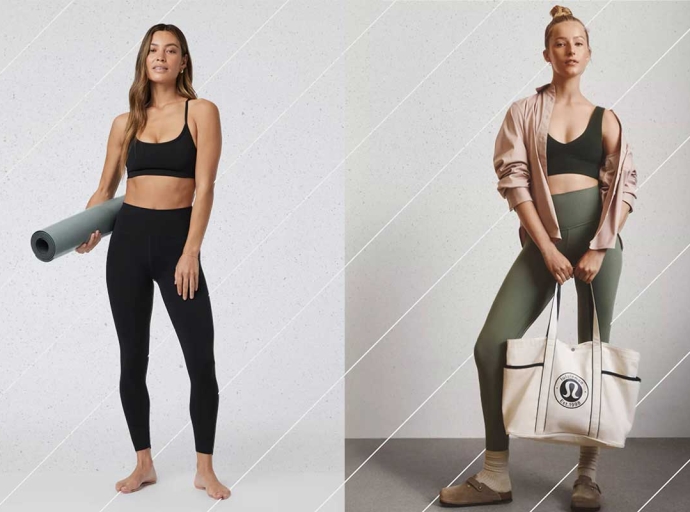10 January 2025, Mumbai
Year 2024 was a defining one for the Indian athleisure sector. The sector saw remarkable growth in both consumer interest and market value. Pushed up by evolving lifestyles, increased health consciousness, and a growing preference for comfort and style, athleisure wear has successfully transitioned from a niche category to a mainstream fashion statement.
This report looks at the key factors that shaped the Indian athleisure market in 2024, analyzing its performance across menswear, womenswear, and kidswear segments, and offering insights into the trends and opportunities that lie ahead in 2025.
Fashion Guru
Factors influencing the market Several factors played a crucial role in pushing up growth in the athleisure sector:
First, with growing concerns about lifestyle diseases and a rising interest in fitness activities like yoga, running, and gym workouts, consumers increasingly sought apparel that seamlessly blended comfort and functionality. The other major factor was the work-from-home or hybrid work culture.
Continued prevalence of remote work arrangements gave a demand boost for comfortable clothing options suitable for both work and leisure activities.
Celebrity endorsements and influencer marketing also played a role. Bollywood celebrities and social media influencers actively promoting athleisure brands significantly influenced consumer preferences and purchase decisions. Add to it a growing middle class with higher disposable incomes that results in higher spending on apparel, including athleisure wear. The e-commerce boom has also worked in its favour.
The accessibility and convenience offered by online shopping platforms facilitated greater penetration of athleisure brands into Tier II and Tier III cities.
Table: Market size and growth
Source Market size in 2023 (Rs cr) Market size in 2024 (Rs cr) CAGR (%) Projected size in 2025 (Rs cr) Statista 52,000 60,000 15.4 75,000 IMARC Group 48,500 58,000 19.6 78,000 Technopak 50,000 59,500 19 76,500.
In fact, the Indian athleisure market exceeded projected growth expectations in 2024. While initial estimates predicted a market value of Rs 55,000 crore, the actual figures reached an impressive Rs 60,000 crore, representing a year-on-year growth of 15 per cent.
Table: Consumption of athleisure
Segment Volume (million units) Value (Rs cr) Premium Athleisure Menswear 15 15,000 Womenswear 20 20,000 Kidswear 10 8,000 Value Athleisure Menswear 50 10,000 Womenswear 60 12,000 Kidswear 30 5,000
The above table indicates, in terms of consumption, it’s the women’s category that led in both premium and value athleisure segments.
Join our group
Winners and losers
The clear winners were homegrown brands like HRX, Alcis Sports, and Cultsport, who gained significant market share, offering a diverse range of products at competitive prices. In fact, HRX, founded by Bollywood actor Hrithik Roshan, has emerged as a major success story in the Indian market. The brand's focus on quality, affordability, and celebrity appeal has resonated with consumers, enabling it to capture a significant market share.
Similarly, global brands like Nike, Adidas, and Puma continued to dominate the premium segment, capitalizing on their brand reputation and innovative product offerings. Direct-to-consumer brands like BlissClub and Zivame too witnessed substantial growth, leveraging their online presence and targeted marketing strategies.
Join our community
Among the losers were traditional apparel brands that were slow to adapt to the athleisure trend. They faced challenges in retaining market share. What’s more, the proliferation of fake athleisure products negatively impacted the sales of genuine brands.
Sustainability continued to be a major draw as consumers showed a growing preference for sustainable and eco-friendly athleisure wear made from recycled materials and organic cotton. Brands increasingly focused on offering a wider range of sizes and styles to cater to diverse body types and preferences.
The integration of technology in athleisure wear, such as smart fabrics and wearable sensors, gained traction. And the emergence of fusion wear, blending traditional Indian elements with athleisure styles, gained popularity.
Visit for more
Outlook for 2025
The Indian athleisure market is projected to reach Rs 75,000 crore by 2025, at a CAGR of 12 percent. Tier II and III cities will offer significant growth opportunities for athleisure brands with their rising disposable incomes and increased internet penetration.
Offering personalized products and shopping experiences is expected to be a key differentiator for brands. Yoga-specific wear, running gear, and gym apparel present opportunities for niche specialization.
However, the market is becoming increasingly competitive, with both domestic and international brands vying for market share.
And the issue of counterfeit products continues to pose a challenge for genuine brands. For brands, maintaining profits while offering competitive prices can be a challenge, especially in the value segment. And sourcing sustainable materials and implementing eco-friendly manufacturing processes can be challenging and costly.
Latest Fashion news


